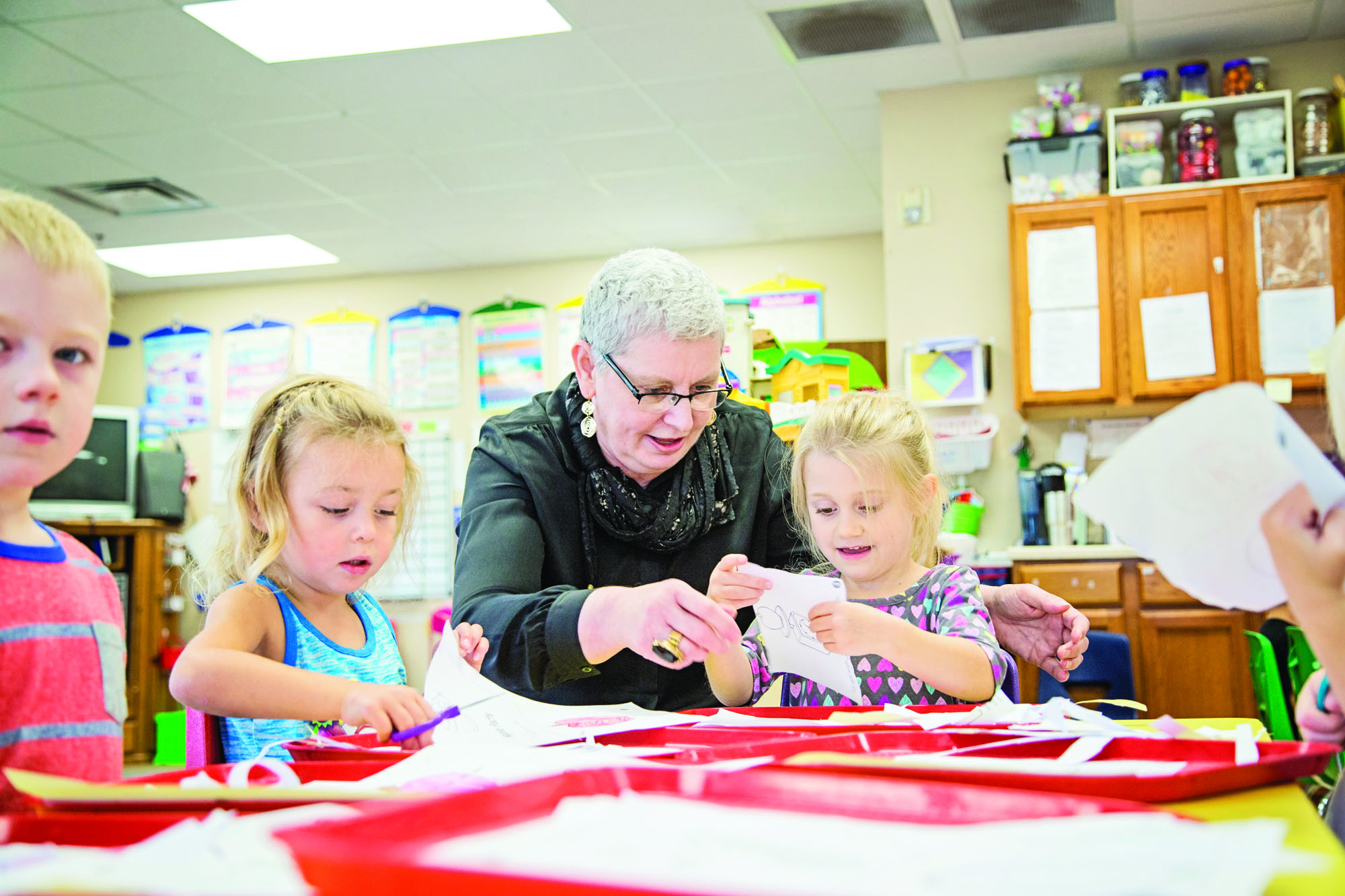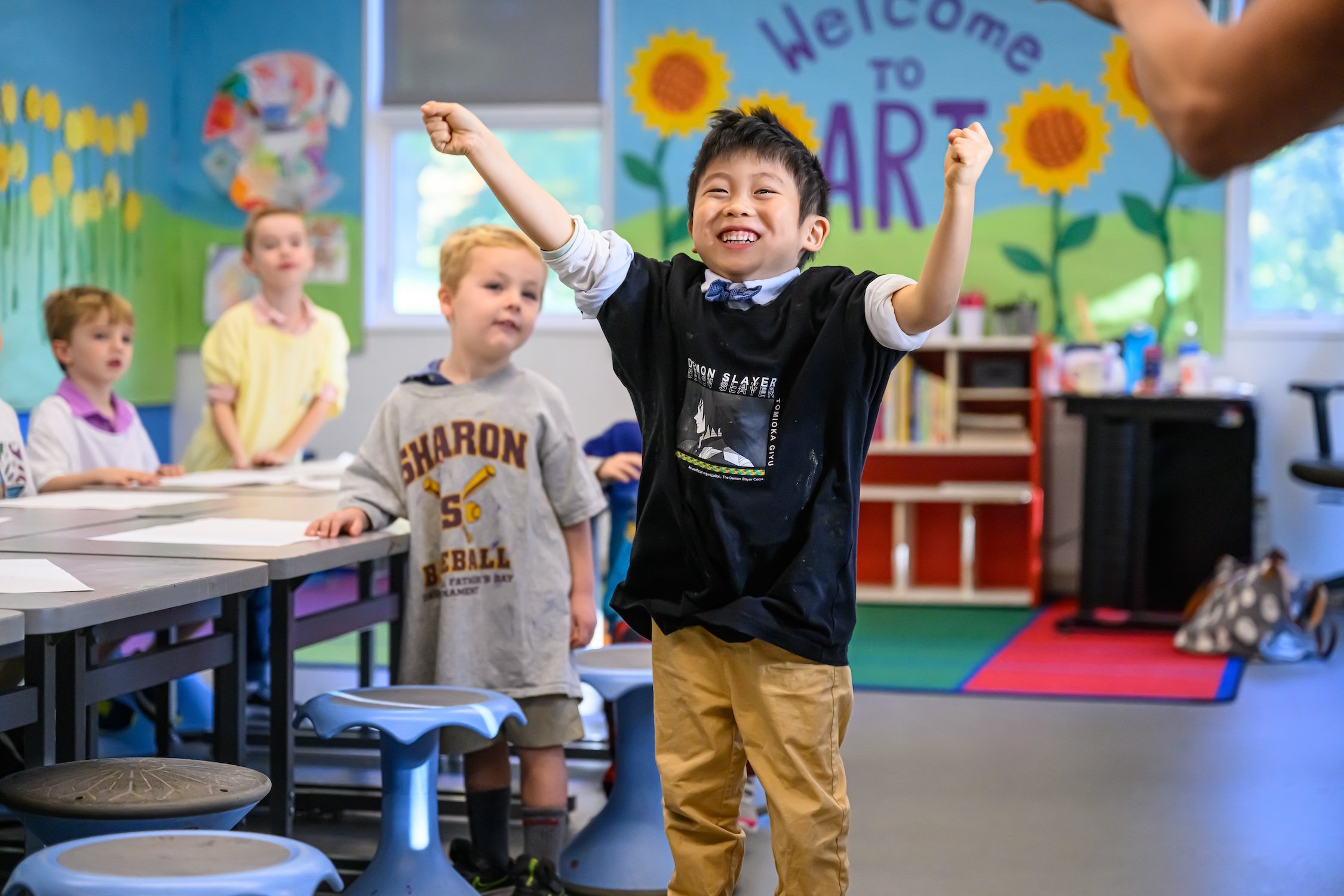How Kindergarten students learn teamwork through fun projects
Wiki Article
Everything About Quality College: Vital Truths and Improving Experiences for Youthful Learners
Quality college plays a pivotal function fit young learners' futures. It incorporates critical scholastic topics and nurtures social abilities through structured interactions. In addition, extracurricular tasks give possibilities for imagination and synergy. Parental participation even more boosts this structure, sustaining youngsters in their scholastic trips. As these aspects intertwine, they develop a thorough instructional experience. However, what specific approaches can educators and moms and dads employ to maximize this advancement?
Understanding the Elementary School Educational Program
As trainees commence their elementary school trip, they encounter an educational program created to develop fundamental skills and understanding throughout different topics. This curriculum generally includes core areas such as maths, language arts, scientific research, and social research studies. Each subject is structured to grow vital thinking, creative thinking, and problem-solving capabilities, vital for future academic success.Language arts focus on analysis, writing, and interaction skills, cultivating trainees' capacity to share themselves clearly. Math presents standard ideas, consisting of addition, reduction, and later, reproduction and division, laying the groundwork for a lot more complex analytic. Scientific research urges query and expedition, igniting interest concerning the environment, while social research studies infuses an understanding of area and multiculturalism.
Along with core subjects, the curriculum usually consists of arts and athletics, providing a versatile educational experience that advertises both physical and intellectual growth. Subsequently, quality institution serves as an essential platform for long-lasting understanding.

The Structure of Quality Institution Education
While quality college education and learning varies by area and organization, it typically complies with an organized framework that promotes modern discovering. Commonly, grade institution incorporates a variety of qualities, frequently from kindergarten with 5th or sixth quality, depending upon the academic system. Each grade degree matches to details developing turning points, with educational program designed to build on anticipation.Courses are generally organized into core subjects, consisting of mathematics, language arts, scientific research, and social research studies, making certain that students receive a well-rounded education and learning. Guideline typically integrates straight training with hands-on tasks, cultivating engagement and crucial thinking.

Evaluation approaches vary yet typically consist of tests, tasks, and tests to examine pupil understanding. Furthermore, instructors typically work together to develop interdisciplinary units, improving the finding out experience. Generally, the framework of quality college education intends to grow foundational skills, prepare trainees for future academic challenges, and advertise a love for discovering that extends beyond the class.
Social Abilities Advancement in Early Learners
Elementary school education and learning not only concentrates on academic skills however additionally plays a considerable role in the advancement of social skills amongst very early students. Throughout these developmental years, kids participate in different activities that motivate interaction, collaboration, and communication with peers. Group jobs and cooperative understanding settings give possibilities for youngsters to practice sharing, discussing, and solving disputes.Moreover, organized play cultivates essential skills like compassion and understanding, as children discover to react and identify to the feelings of others. With assisted social interactions, instructors aid pupils develop vital my blog listening and conversational check this site out skills. As children browse relationships and group characteristics, they get confidence in their social capacities.
The Role of Extracurricular Tasks
Extracurricular tasks play a substantial function in enhancing the academic experience of elementary school trainees by offering opportunities for personal growth past the classroom. These tasks permit students to explore rate of interests and abilities, fostering creative thinking and self-expression. Involvement in sporting activities, songs, art, and clubs grows teamwork, leadership abilities, and a sense of belonging.Engaging in such activities advertises physical health and well-being, urging pupils to maintain an energetic lifestyle. Extracurricular programs additionally work as a platform for students to build friendships and create social skills, which are vital for their overall growth
As pupils browse their rate of interests outside of academics, they obtain beneficial experiences that contribute to their self-confidence and durability. Eventually, these tasks play a critical role fit well-rounded individuals, preparing them for future obstacles both in and out of the class.
Sustaining Discovering Via Parental Involvement
Parental participation substantially enhances the educational trip of elementary school trainees, as it promotes a supportive environment that strengthens knowing. Engaged moms and dads add to their youngsters's scholastic success by going to college occasions, assisting with research, and preserving open interaction with educators. Private School. This involvement not only boosts students' motivation but likewise cultivates a sense of belonging and self-esteemStudy indicates that kids whose moms and dads are proactively involved tend to have greater grades, better attendance, and improved behavior in school. Additionally, parental engagement encourages the growth of essential life abilities, such as time monitoring and duty.
Schools can facilitate this participation by holding workshops, offering sources, and encouraging routine feedback. By developing partnerships between moms and dads and instructors, elementary school can ensure a detailed strategy try this web-site to pupil advancement. Ultimately, adult involvement functions as a keystone for cultivating a positive educational experience, benefiting both students and the institution community overall.
Regularly Asked Concerns
What Are the Common Quality Institution Hours for Pupils?
Common elementary school hours for students typically vary from 8:00 AM to 3:00 PM, differing by district. Several schools include a lunch break and recess, ensuring trainees have time to charge during the day.Just How Do Quality Schools Address Diverse Learning Demands?
Quality colleges attend to varied finding out demands with differentiated instruction, tailored lesson strategies, and assistance solutions, ensuring all pupils receive suitable sources. Educators team up with professionals to create inclusive settings that foster private development and interaction.What Is the Duty of Modern Technology in Quality School Education?
Technology in quality school education and learning improves discovering with interactive devices, personalized discovering experiences, and access to huge resources. It promotes cooperation among teachers and pupils, preparing children for a technology-driven future while supporting varied academic needs.How Can Parents Help With Research Properly?
Moms and dads can assist with research properly by creating an organized setting, encouraging independence, providing sources, and using support without directly giving answers. Interaction with instructors likewise improves understanding of expectations and promotes academic success.What Are Common Obstacles Dealt With by Elementary School Students?
Usual challenges encountered by grade school students consist of difficulty with time administration, comprehending complicated ideas, keeping focus throughout lessons, maneuvering social characteristics, and balancing academic obligations with extracurricular tasks, every one of which can influence their total performance.As trainees start their quality college trip, they encounter an educational program created to build fundamental abilities and knowledge throughout various subjects. Commonly, quality college encompasses a range of qualities, usually from kindergarten with sixth or 5th quality, depending on the instructional system. Extracurricular activities play a substantial role in boosting the educational experience of quality school pupils by giving opportunities for individual growth past the class. Adult participation significantly boosts the instructional trip of quality school students, as it cultivates an encouraging environment that strengthens understanding. By producing collaborations between moms and dads and educators, quality institutions can assure a complete method to trainee development.
Report this wiki page